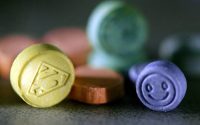Cedars-Sinai's Stem Cell and Bone Marrow Transplant Program recognized with two major hallmarks of quality
The Stem Cell and Bone Marrow Transplant Program at Cedars-Sinai Cancer was recently recognized with two important hallmarks of quality: official accreditation for CAR T-cell therapy, and a third year in a row ranking among the top adult bone marrow transplant programs in the U.S.
Both achievements are reason to celebrate, because they reflect the quality of care that our center is providing to patients-;and ultimately, exceptional patient outcomes and survival. Our team brings their best efforts to work each day, because we have the privilege of serving patients who trust us with their lives."
Ronald Paquette, MD, clinical director of the Stem Cell and Bone Marrow Transplant Program and director of Myeloid Malignancies
The Foundation for the Accreditation of Cellular Therapy, an international accrediting body, recently awarded the program its first accreditation for CAR T-cell therapy, in which white blood cells called T lymphocytes are collected from a patient's blood, genetically altered to kill cancer cells, then injected back into the patient.
CAR T-cell therapy is given to patients with treatment-resistant lymphoma, leukemias and multiple myeloma. Paquette said that Cedars-Sinai only recently began offering this complex treatment, under the direction of Justin Darrah, MD, director of the CAR T-Cell Program and co-director of the Lymphoma Program at Cedars-Sinai.
"It took more than two years to establish our procedures and complete training before we treated our first patient," Paquette said. "We had to be certain that our team was familiar with the therapy, the complications that can occur, and that we had the procedures in place to ensure that we can provide the best care for our patients."
Demand for the therapy has been increasing.
"It's an area that's evolving very rapidly," Paquette said. "The number of patients we're treating is going up exponentially, because there are a growing number of situations in which CAR T-cell therapy is even better than the previous standard of care."
The foundation also renewed Cedars-Sinai's accreditation to perform stem cell transplants for patients with leukemia, lymphoma and myeloma, as well as noncancerous bone marrow disorders.
Immunology eBook

The Center for International Bone Marrow Transplant Research recently recognized the Cedars-Sinai program for its success in achieving higher-than-expected one-year survival rates for patients.
Infusions of stem cells collected from the blood can be used to cure a variety of blood cancers following the administration of radiation and chemotherapy. Among more than 150 centers in the U.S. that perform these transplants on adults, Cedars-Sinai is one of just nine that exceeded expected one-year survival rates.
"Our one-year survivals are significantly better than expected based on the characteristics of the patients that we're transplanting," Paquette said. "And for the last three years, we've been in that group of centers that exceeds expectations."
Paquette credits a highly trained clinical team and a drive to provide patients with cutting-edge transplant approaches with achieving such good outcomes. In addition to the physicians, members include transplant coordinators, who ensure patients complete pre-transplant testing; radiation oncologists, who perform whole-body irradiation to prepare patients for the new cells; and nurses, nurse practitioners, fellows, residents, interns and attending physicians, who care for patients in the hospital.
Before patients are discharged, a case manager ensures that they have everything they need-;including medications and equipment-;to recover at home. And a social worker checks in to make sure there is a friend or family member ready and able to assist in that recovery.
After discharge, patients have follow-up visits with practice nurses and nurse practitioners who monitor their condition and coordinate any needed follow-up tests or procedures.
"This program is made up of a team of highly skilled and dedicated researchers and clinicians, under leadership that puts patient care front and center," said Dan Theodorescu, MD, PhD, director of Cedars-Sinai Cancer and the PHASE ONE Distinguished Chair. "Its expanding accreditations and continued ranking among the top programs in the country reflect the dedication of the entire Cedars-Sinai Cancer enterprise to quality care and making the latest therapies available to our patients."
Cedars-Sinai
Posted in: Medical Condition News | Healthcare News
Tags: Blood, Bone, Bone Marrow, Bone Marrow Transplant, Cancer, CAR T-cell, Cell, Chemotherapy, Hematology, Hospital, Leukemia, Lymphoma, Multiple Myeloma, Myeloma, Research, Stem Cells, T-Cell, Transplant
Source: Read Full Article


